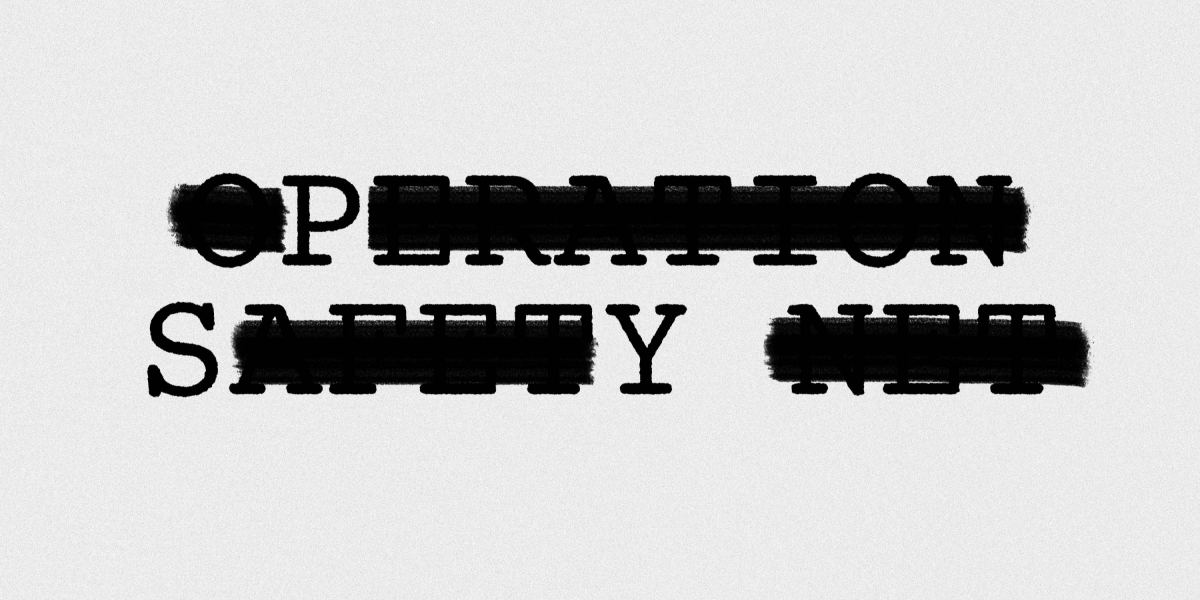The next day, school was canceled. In response to the chaos of the previous night, the Brooklyn Center City Council hurried to pass a resolution banning aggressive police tactics such as rubber bullets, tear gas, and “kettling,” in which groups of protesters are blocked into a confined space. A curfew was also put into effect from 7 p.m. to 6 a.m. The council’s resolution went into effect by nightfall on the 12th, but police continued using the banned tactics and munitions. That night, approximately 20 businesses in the area were broken into.
As part of the operation, Minneapolis Police also summoned helicopters from Customs and Border Protection (part of the US Department of Homeland Security). The presence of circling aircraft would become a hallmark of Operation Safety Net. During the peak of the protests, the helicopters came and went from a difficult-to-access industrial area near the Mississippi River between Brooklyn Center and Minneapolis, flying at high altitudes to avoid detection.
On at least two nights during the height of the protests, which spanned nearly 10 days, law enforcement briefly detained and took detailed photographs of credentialed members of the press who were covering the events.
The ACLU, along with pro bono lawyers from private law firms Fredrikson & Byron P.A. and Apollo Law, recently settled a class action lawsuit against the Minnesota State Patrol over its treatment of journalists during the protests. The settlement requires the city to pay $825,000 to injured journalists, and a federal judge ordered an injunction lasting six years that prohibits Minnesota policing agencies from attacking and arresting journalists, or ordering them to disperse from the scene of a protest. (Similar allegations are still being pursued against the city of Minneapolis and several officials.)
On April 15, more than 75 community organizations, including the ACLU, issued a joint statement calling for the state to end OSN. “The state’s use of force against Minnesotans exercising their First Amendment rights in Brooklyn Center and militarization of our cities in response to police violence is wrong, traumatizing, and adding to the public health crisis of COVID, police brutality, and systemic racism,” the statement read. It called out the “continued use of militaristic tools of oppression to intimidate and halt peaceful, if justifiably angry, protest.” The NAACP also called for a stop to Operation Safety Net via Twitter.
The Minneapolis Legislative Delegation, a group of state legislators, sent a letter to Minnesota governor Tim Walz condemning OSN and asking for a “reevaluation of tactics.” Congresswoman Ilhan Omar also criticized OSN, likening it to “a military occupation” and calling on Walz and Minneapolis mayor Jacob Frey to “stop terrorizing people who are protesting the brutality of state sanctioned violence.” On April 22, the US Department of Justice announced an investigation into the Minneapolis Police Department, citing a possible pattern of excessive use of force including in response to protests. The investigation is ongoing.
All told, the operation cost tens of millions of public dollars, paid by the participating



